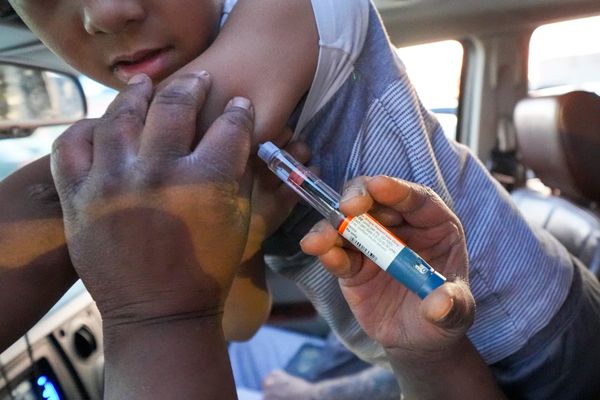Hopes of a near-term Federal Reserve rate cut suffered on Thursday, despite a sluggish retail sales report, as health care inflation got a sharp upward revision. The S&P 500 turned modestly lower after the data raised concern over what the Fed will say next week about the outlook for the economy and interest rates.
Producer price index data suggested that the Fed's primary inflation gauge, the core PCE price index, is likely due for an upward revision for January, which may mean a 0.5% increase from the initially reported 0.4% rise.
Retail Sales
Overall retail sales rose 0.6% in February, while January's initially reported 0.8% decline was revised to -1.1%. Economists expected a 0.7% rise, according to Econoday.
Excluding autos, retail sales rose 0.3% vs. 0.4% expectations, even as January's stumble was revised to -0.8% from -0.6%. Factoring out spending on both autos and gas, sales rose 0.3% vs. 0.2% forecasts, while January's data was revised to -0.8% from -0.5%.
Sales at food service and drinking places rose 0.4% in February, but January sales were revised to -1% from +0.7%.
Weather and seasonal-adjustment challenges hurt January retail sales, but the excuse for February's muted recovery is less clear.
Over the three months through February, overall retail sales slipped 0.5% from the prior three months, with non-gas sales down 0.2%.
Jobless Claims
New claims for jobless benefits fell to 209,000 from the prior week's 210,000 total that was revised down by 7,000. Wall Street was expecting a 215,000 print.
The four-week moving average of claims fell 500 to 208,000 from the prior week's revised total.
Amid a tweak to its seasonal adjustment methodology, the Labor Department revised down ongoing claims for jobless benefits in the last week of February by 112,000 to 1.794 million.
Some forward indicators have pointed to a softening job market, but so far the data remains strong.
PPI Inflation Data
The producer price index for final demand rose 0.6% in February vs. 0.3% expectations. Excluding food and energy, producer prices rose 0.3%, topping 0.2% forecasts.
Health care services prices and portfolio management services are among the notable components of the PPI feed into the Fed's primary inflation rate, the core PCE price index.
The overall PPI measure of selected health care industry prices rose 0.3% in February, unadjusted for seasonal variation. However, January's initially reported increase of 0.7% was revised up to 1.1%. The year-over-year increase held at 3.2%, after January's 12-month price increase was revised to 3.2% from 2.8%.
Health care inflation is now running at its highest rate since April 2021, according to the PPI data.
Laura Rosner-Warburton, founding partner of MacroPolicy Perspectives, posted that January's core PCE gain is likely to be revised up by 6 basis points from the initial 0.42% increase. However, the PPI showed services prices cooling in February. "The mix suggests the start of the year price reset was larger but isn't repeating."
Meanwhile, portfolio management services prices rose a mild 0.2%, down from 5.9% in January.
Nomura economist Aichi Amemiya wrote that he expects the core PCE price index for January to be revised up to a 0.5% gain. After CPI and PPI data, he expects a 0.3% increase in the core PCE price index for February.
That combination raised the possibility that Fed policymakers will "substantially" revise up their projection of 2.4% core inflation for 2024, he wrote.
Fed Rate-Cut Odds
After the retail sales and PPI data, markets were pricing in just 4% odds of a Fed rate cut on May 1. Odds of a rate cut by June 12 stood at 63%, down from 67% before the releases. For the full year, markets are pricing in a strong likelihood (69%, down from 73%) of at least three quarter-point rate cuts
S&P 500
The S&P 500 slipped 0.3% in Thursday stock market action, turning negative after the retail sales, jobless claims and PPI data. That follows a slight 0.2% decline for the S&P 500 on Wednesday. However, the S&P 500 hasn't had a three-session losing streak since Jan. 4.
The 10-year Treasury yield climbed 10 basis points to 4.29%
Be sure to read IBD's The Big Picture column after each trading day to get the latest on the prevailing stock market trend and what it means for your trading decisions.







